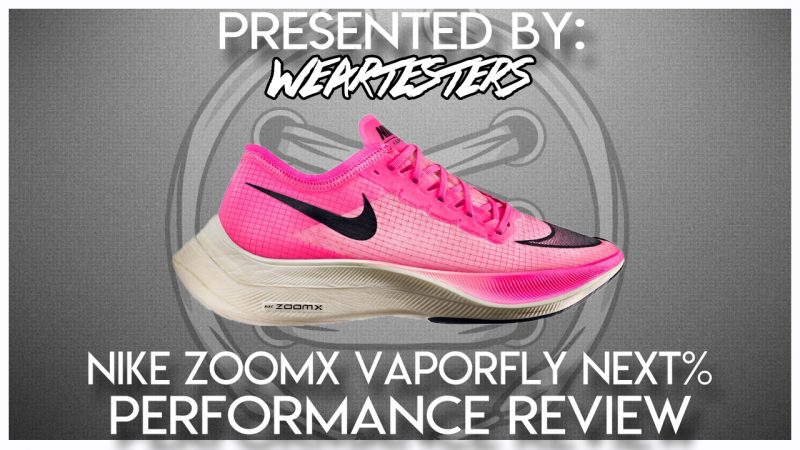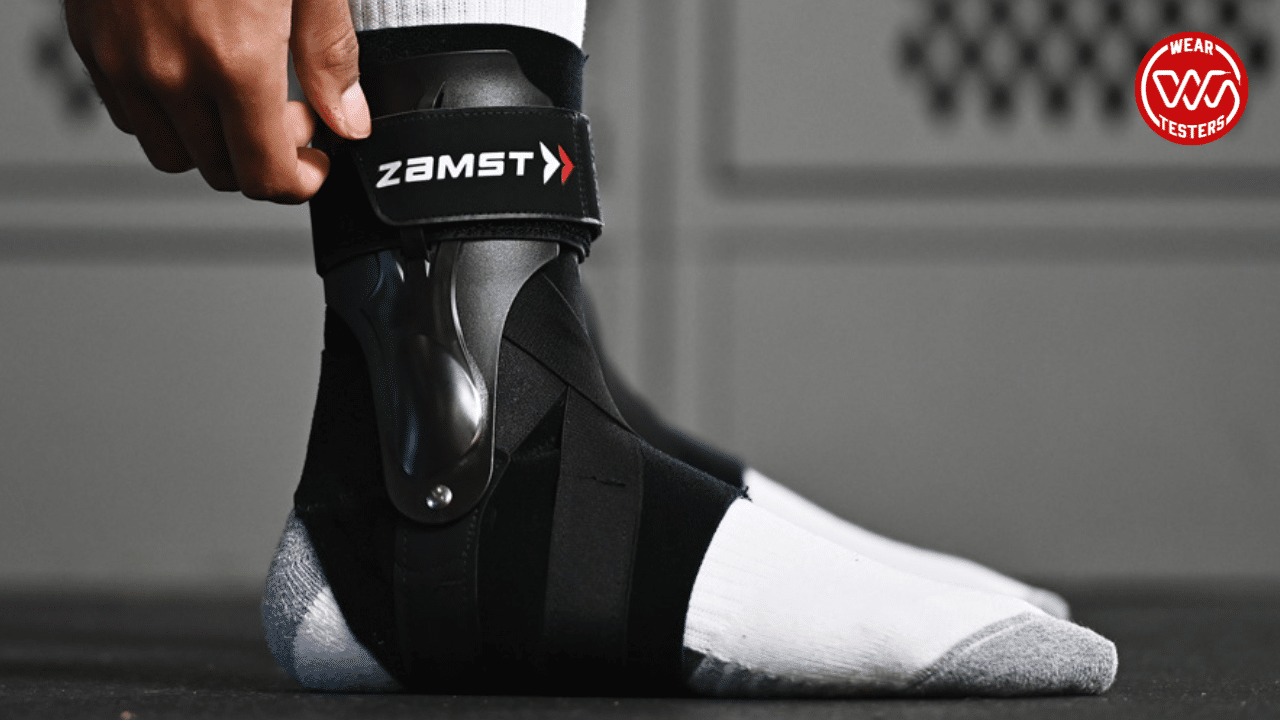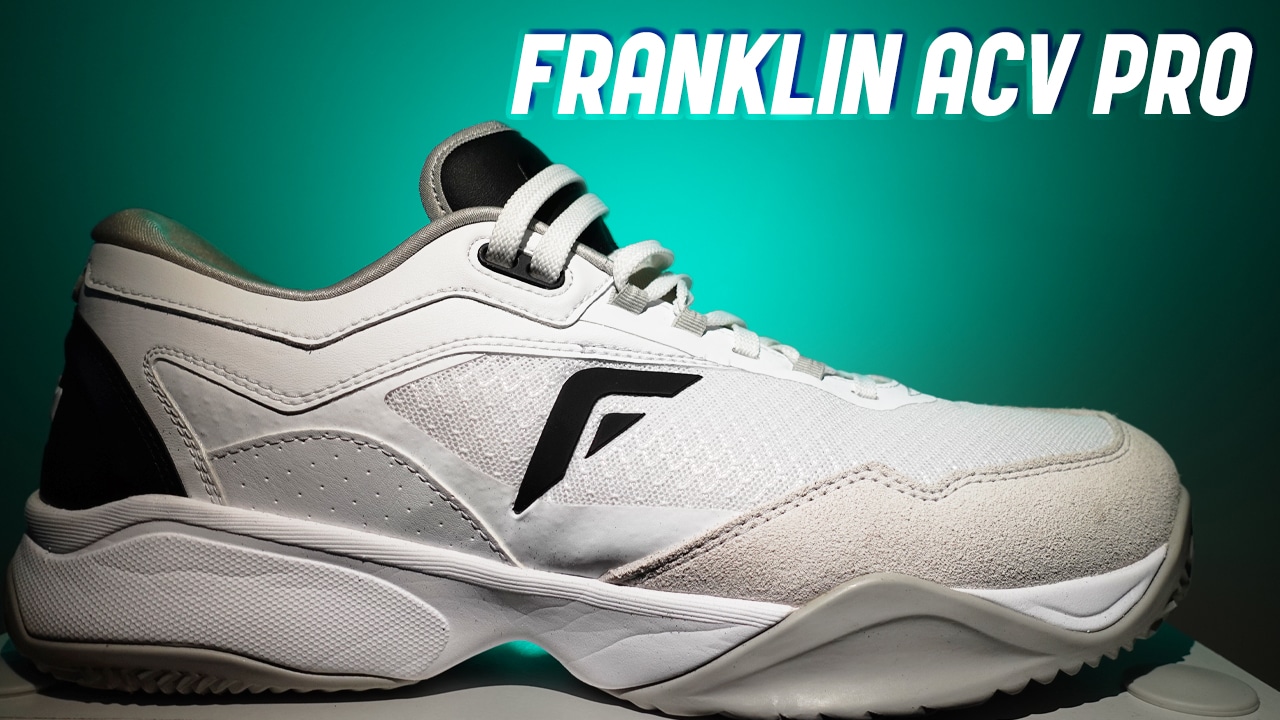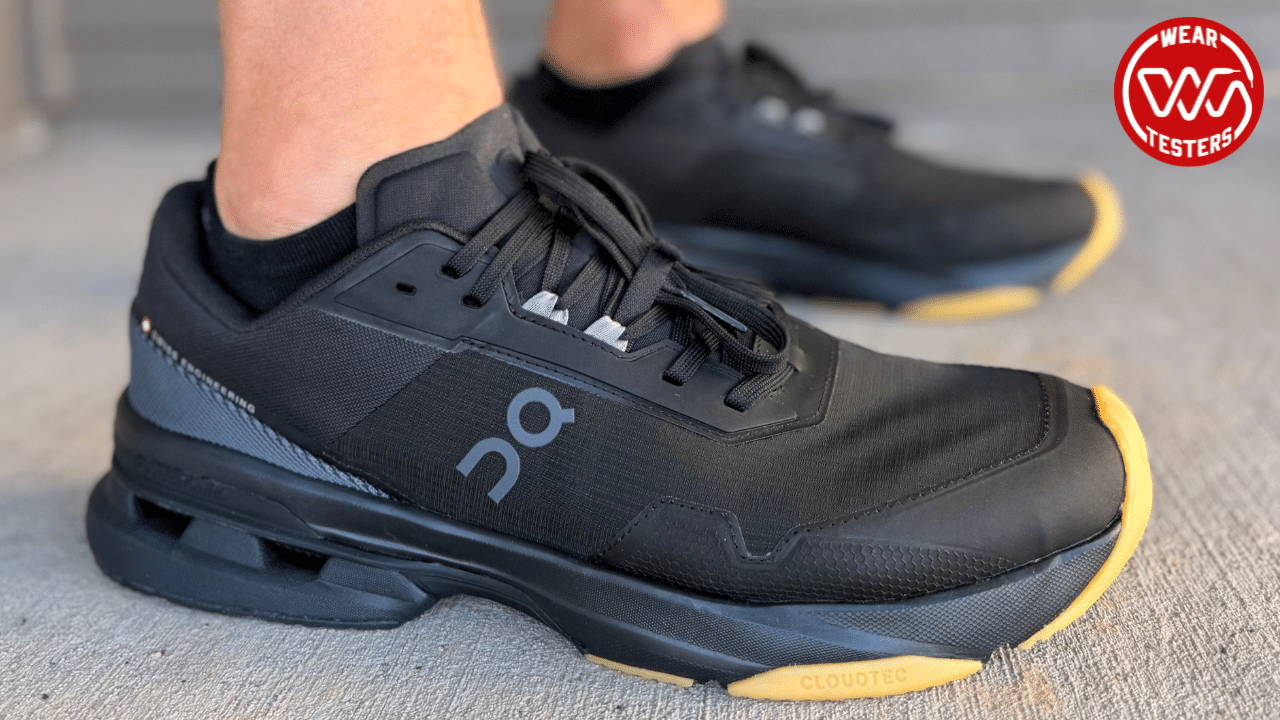The Nike ZoomX Vaporfly NEXT% has graced the feet of the majority of marathon runners since its release. Athletes have broken countless records in what’s been called the fastest shoe on Earth. Some have even suggested the shoe be banned due to its success.
This review is a guest contribution from Dan Forry. Dan is currently a collegiate runner at York College of Pennsylvania and a mechanical engineering student. He’s a long time watcher and reader of WearTesters.
Nike says on the shoe, “Measured in the lab. Verified with medals and records.” I decided to give the shoe a go and see if it lives up to the hype.
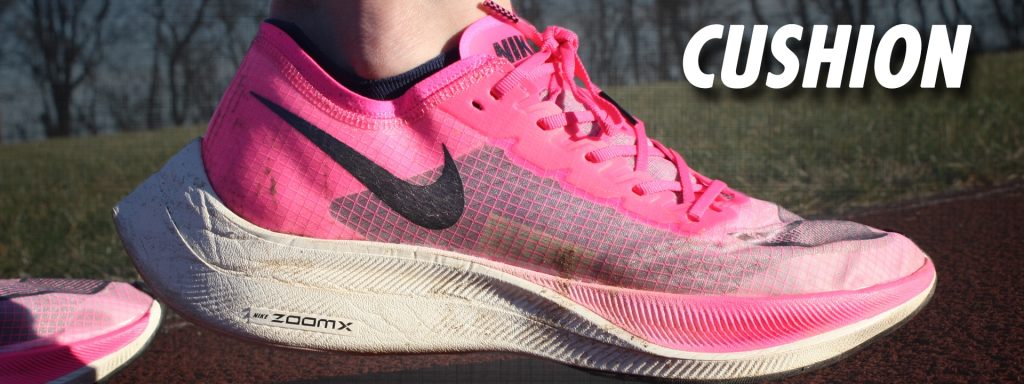
Cushion
I was introduced to ZoomX foam in the Nike ZoomX Pegasus Turbo and it’s been one of my go-tos for regular runs. The ZoomX foam is a thermoplastic polymer, known as Pebax. It is a lower density than TPU. The foam feels like it gives a greater rebound than TPU foams.
I used the Nike ZoomX Vaporfly NEXT% for speed workouts and racing. When running on the cinder trail in my hometown, I found myself running faster than expected. In a recent workout, I was intending to run at 6:00 minute per mile pace, but ran 5:50 pace without trying. For workouts, I have had to focus on keeping my warmups at the correct pace. The shoe makes running pace feel easy. The Pebax foam is both lightweight and responsive.
The cushioning gives a bouncy feeling underfoot. I noticed a difference on the roads compared to a cinder rail trail. On the roads and track, the shoe provides the best rebound. Sandwiched in the foam is a full-length carbon fiber plate. Nike provided a breakdown of the foam and carbon fiber layers in their press release. The plate helps to stabilize the foam and keep the shoe rigid. There is enough foam underfoot for a comfortable ride for longer runs. The longest run I did in them was a half marathon workout and it felt like one of my best workouts ever.
On gravel, the exposed foam started to wear. I ran through an empty corn field and lost a very small piece of foam on the lateral side. An old corn stalk scraped the foam and chipped it. It was about the size of small pebble.
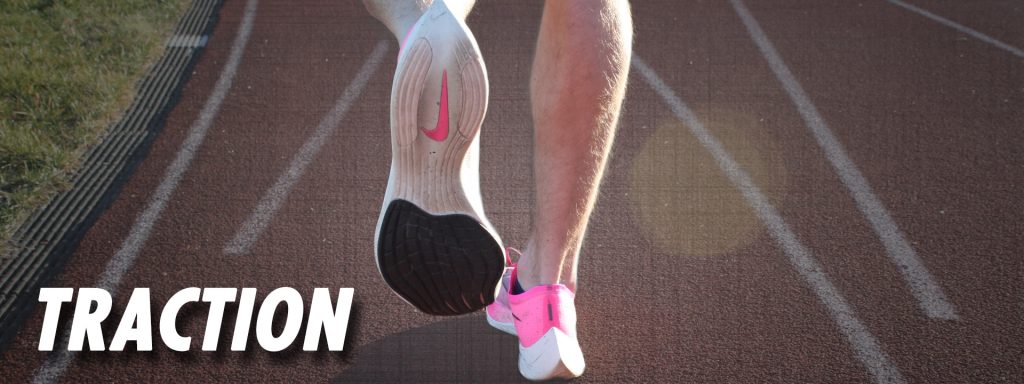
Traction
The traction is similar to the Nike Zoom Fly 3. It is a similar pattern and rubber compound. I used the NEXT% on grass, gravel, roads, brick, concrete, and a track. The traction performed great on all surfaces. One of my runs on grass, it was pouring. I was practicing my cross country course, and surprisingly only fell once in the mud. That’s great for a road marathon shoe in slick conditions. I was able to run each surface at least once in the rain and only slipped on the grass. The traction does start to wear after heavy road use. The track and grass wore the traction down the least. The NEXT% provides a well-rounded traction on all racing surfaces.
I tried to test them in the snow, but I couldn’t get any traction. On wet snow, the rubber slides and provides no grip.
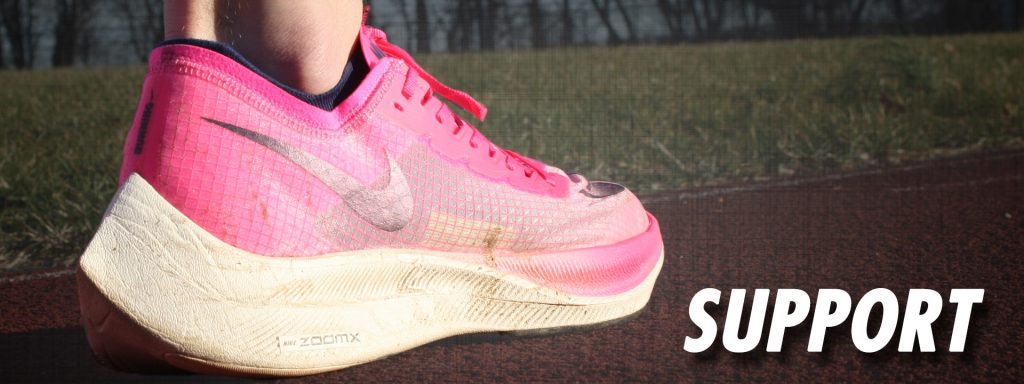
Support
I have used other Nike marathon flats, and the NEXT% provides more support than previous flats. While it is a more narrow last, the foam extends outside the last, acting like an outrigger on the medial and lateral sides of the forefoot. There is a heel cup on the NEXT%, but besides that there’s not much in the heel. Nike wants you landing on your midfoot to forefoot, so there is minimal support in the back half. In one of my cross country races, I did have some instability coming down a short hill. But if you are mainly running on roads that shouldn’t be a problem.
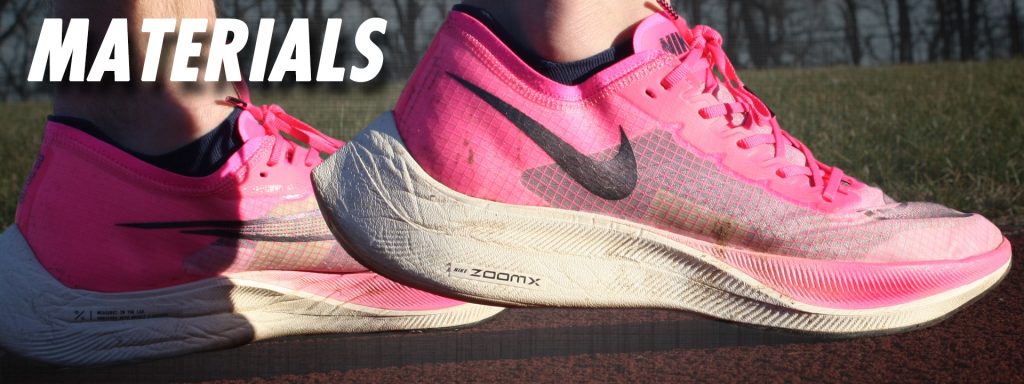
Materials
Nike uses their new VaporWeave material on the NEXT%. The same material is used on the Nike Zoom Fly 3. Nike implements the VaporWeave alone, and it works amazing. While it looks like a ripstop material (which I detest on performance running shoes), it acts like a lightweight mesh. My feet sometimes sweat a lot, and the VaporWeave provide great ventilation. The VaporWeave does not hold water, so the upper does not become heavier when wet.
I have not had issues with the laces when wet or dry. I double knotted them and they held well on every run.
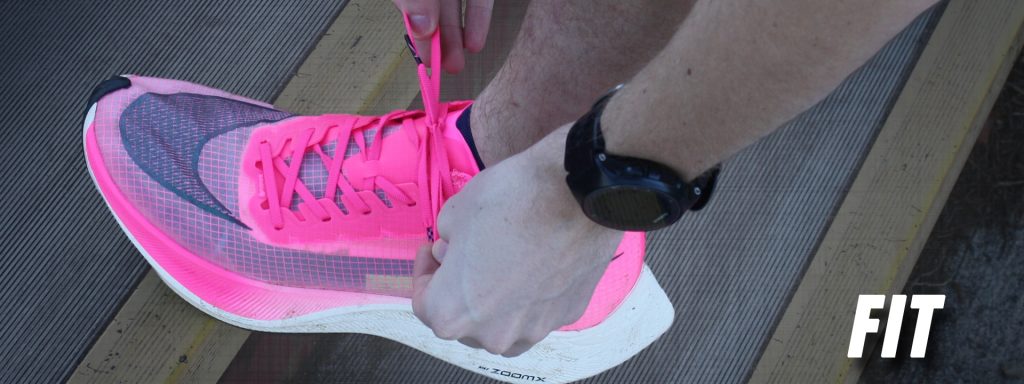
Fit
I have a very narrow foot and usually go down half-a-size for Nike racing flats. For the NEXT%, I went true-to-size and they felt great. The forefoot has enough space for my toes to extend when running.
The upper provides good lockdown. I used the Nike ZoomX Vaporfly 4% Flyknit briefly and the heel lockdown was lacking. Nike improved on the lockdown tremendously in the NEXT%. There are achilles pillows in the heel that help to keep your foot in place, in addition to the well fitting upper.
I have worn both thick and thin socks with the NEXT% and have not had any issues.
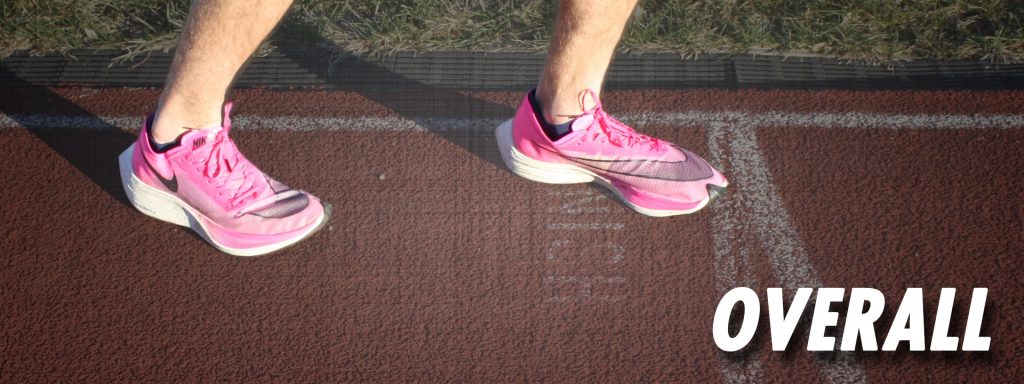
Overall
The Nike ZoomX Vaporfly NEXT% is a great marathon racing flat. The shoe has been on the feet of countless elite marathoners and is one of the best on the market. But the price of $250 is very high for most casual runners. It’s definitely a racing flat and I would not recommend it for regular training runs or casual use. The shoe is great for road racers who want that extra edge to help reach their next goal.
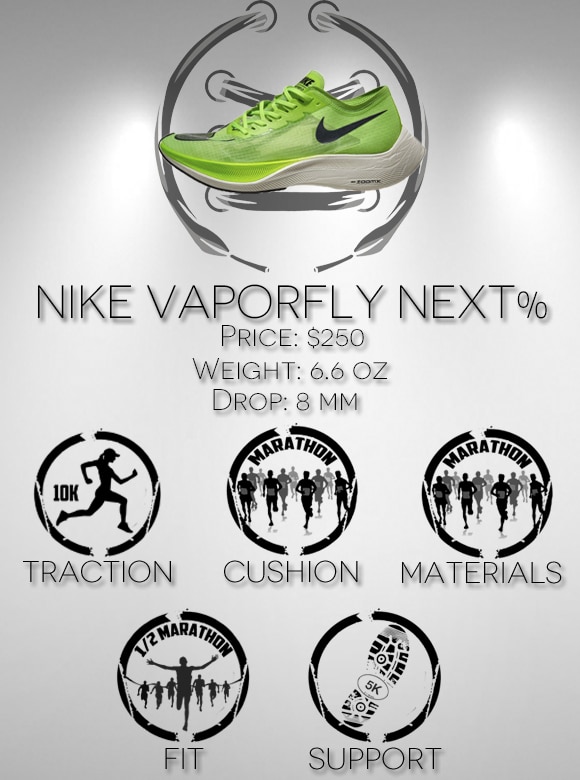
Nike was not given any editorial control of the review. This review is based on our weartesters’ experiences using the shoes for speed workouts, long runs, and more.

